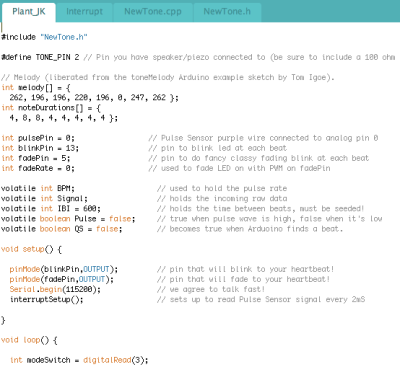In my first reflection of #CMK13 I touched on the idea of success and how it can change over time. I wanted to return to that idea and focus on how important it was for success to become a more flexible concept during my time at #CMK13.
I arrived at the Institute with the idea that failure was not only feasible but likely over the few days I would be there. I was comfortable with the possibility of getting stuck and having to try again. What I had not considered was how strongly I and others would feel a need to achieve and achievement primarily meant success (everything works perfectly!) … at first.
The pull towards achievement came from being surrounded by peers and experts who had amazing and inspiring ideas. It came from the culture of testing and assessment that many of us work in and the deadline of Friday presentations. It also came from a sense that we had all been transported to a magical world where time stood still for awhile and we had less pressures, so we couldn’t waste that kind of treasure!
Of course, as the Institute progressed, achievement became both simpler and more complex. As I relaxed into the unique environment of CMK, a place where you can sit on the floor and brainstorm with a group of dedicated people you’ve never met before and then began to make and create, I realized we didn’t have to worry so much about wasting time. Researching, learning, trying and doing were all extremely valuable and valued pursuits at CMK. Often, those activities can begin to feel unproductive because they don’t produce an immediate product and they are hard to demonstrate or account for when explaining how you’ve used your time.
Enjoying the Process and Learning Through Doing
Instead, at #CMK13 I could allow myself to enjoy the process and to accept that there would be iteration upon iteration of tinkering with a code, trying a wire, and even breaking a few things (woops … that LED definitely needed a resistor!). And through that enjoyment of the process, achievement became simple. It became something that’s obtained by gaining understanding, having ah-ha moments, and then losing the magic and having to start all over again.
One conversation between Deborah Meier and Eleanor Duckworth at CMK particularly stuck with me … that maybe ah-ha moments aren’t the most important because almost as soon as we’ve had them, they begin to fade away and we’re back to wondering how to make sense of things. Yet, as Duckworth has so eloquently described, it’s the more general having of wonderful ideas that can be so powerful, not just the momentary clarity that comes from gaining a deep understanding of them.
“The “aha experience” is a moment in time, but what happens after that?” – Deborah Meier ” #CMK13
— Gary Stager, Ph.D. (@garystager) July 11, 2013
Ah ha might not stay but depth of experience messing about can remain – Duckworth #CMK13
— Margaret A Powers (@mpowers3) July 11, 2013
CMK was full of wonderful and powerful ideas. Some of them became projects that came to fruition over the course of the Institute and some ideas were dropped minutes after they were raised, never to be heard again but that doesn’t mean they weren’t wonderful or meaningful. And that’s where the complexity comes into play. For me, achievement began to take shape as a self-satisfied notion, something that only I could truly judge but one that was ever-changing. Achievement meant learning and doing, it was making and creating, sharing and trying and stumbling over both small and large obstacles. At the end of CMK, I felt I had achieved a great deal, not because we had a perfect, finished product to show everyone, but because I had succeeded in experiencing the deep process of collaboratively learning something completely new.

Pouring Over Arduino Sketches – Looking for Bugs
There were a few ah-ha moments mixed in with multiple roadblocks. I had small moments of clarity where I was able to explain exactly what was happening and why, followed by confusion when I added a new piece of knowledge that seemed to destroy the whole schema I had just constructed. Ultimately, I walked away from #CMK13 feeling like I could appreciate a much messier, more complicated, changing definition of achievement, and one that I can’t wait to experience again!
How do you define achievement and success? How do you think your students define those concepts and do they leave room for the slow construction of knowledge through exploration and discovery? Or do other ideas about success overshadow them.












Pingback: 20 Feet Cargo Container - CMK MV107
Pingback: About CMK 2014
Pingback: Let’s Let All Educators Learn by Experience | Margaret A. Powers